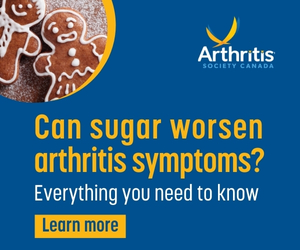What are the benefits of breast-feeding?
There are many good reasons to breast-feed your baby:
- It can help protect your baby from infections (such as ear and respiratory infections) and allergies or conditions related to allergies, such as asthma and eczema.
- It may help prevent SIDS (sudden infant death syndrome).
- It may reduce the risk of type 1 diabetes, inflammatory bowel disease, and dental problems.
- It may enhance your baby's brain development.
- It's easy on your baby's digestive system.
- The skin-to-skin contact helps you bond with your baby.
- It can help you lose weight after pregnancy.
- It lowers your risk of breast, uterine, and ovarian cancers, as well as complications related to osteoporosis.
- It's convenient! You have nothing to wash, sterilize, or prepare when you breast-feed.
Both Health Canada and the Canadian Paediatric Society recommend breast-feeding exclusively as the best way to nourish your baby during the first 6 months of life.
How often should I breast-feed my baby and how long should each feeding last?
Let your baby be your guide. Shortly after birth, your baby will probably want to feed every 2 to 3 hours. Allow your baby to keep feeding from each breast for as long as they want. To make sure both breasts are making a good milk supply, start each feeding with a different breast.
How can I tell if my baby is feeding well?
During nursing, you should hear swallowing sounds that start off short (a "K" sound) and gradually get longer and deeper as the feeding continues. Your baby's jaw muscles should move evenly during sucking, and the movement should be visible up to their ears. After the feeding, your baby should seem content, and the feeding should not be painful for you.
If your baby is making a lot of lip smacking noises and doesn't seem to be swallowing, if the feeding hurts you, or if your baby does not seem content afterwards, they may not be feeding well.
A baby who is getting enough to eat should produce 6 to 8 wet diapers every 24 hours. During the first month, they should produce several loose stools a day. The stool of breast-fed infants will often be yellowish in colour and have a grainy or "seedy" appearance with the consistency of yogurt. After this, stools may come every 2 to 7 days. Your doctor will check regularly to see if your baby is gaining weight normally. If you have any concerns about whether your baby is feeding well, talk to your doctor.
Does my baby need any supplements or vitamins, or is breast milk enough?
In general, breast milk provides nutritious food that's tailor-made for your baby. But it does not provide enough vitamin D. The Canadian Paediatric Society recommends vitamin D supplements (available as drops) for all exclusively breast-fed babies. The usual dose is 400 IU daily for the first year of life or until the baby's diet includes this amount of vitamin D. Depending on factors such as skin colour and where you live, certain babies may need an additional 400 IU per day. Ask your doctor about how much vitamin D your baby should aim to get.
Some people believe that because breast milk has low levels of iron in it, breast-fed babies should have a daily iron supplement. This is not true! Only give your baby an iron supplement if advised by their doctor. Generally, healthy, full-term babies do not require any more iron than what breast milk can give them before 6 months of age.
All material copyright MediResource Inc. 1996 – 2025. Terms and conditions of use. The contents herein are for informational purposes only. Always seek the advice of your physician or other qualified health provider with any questions you may have regarding a medical condition. Source: www.medbroadcast.com/healthfeature/gethealthfeature/Breast-feeding-Getting-Started

